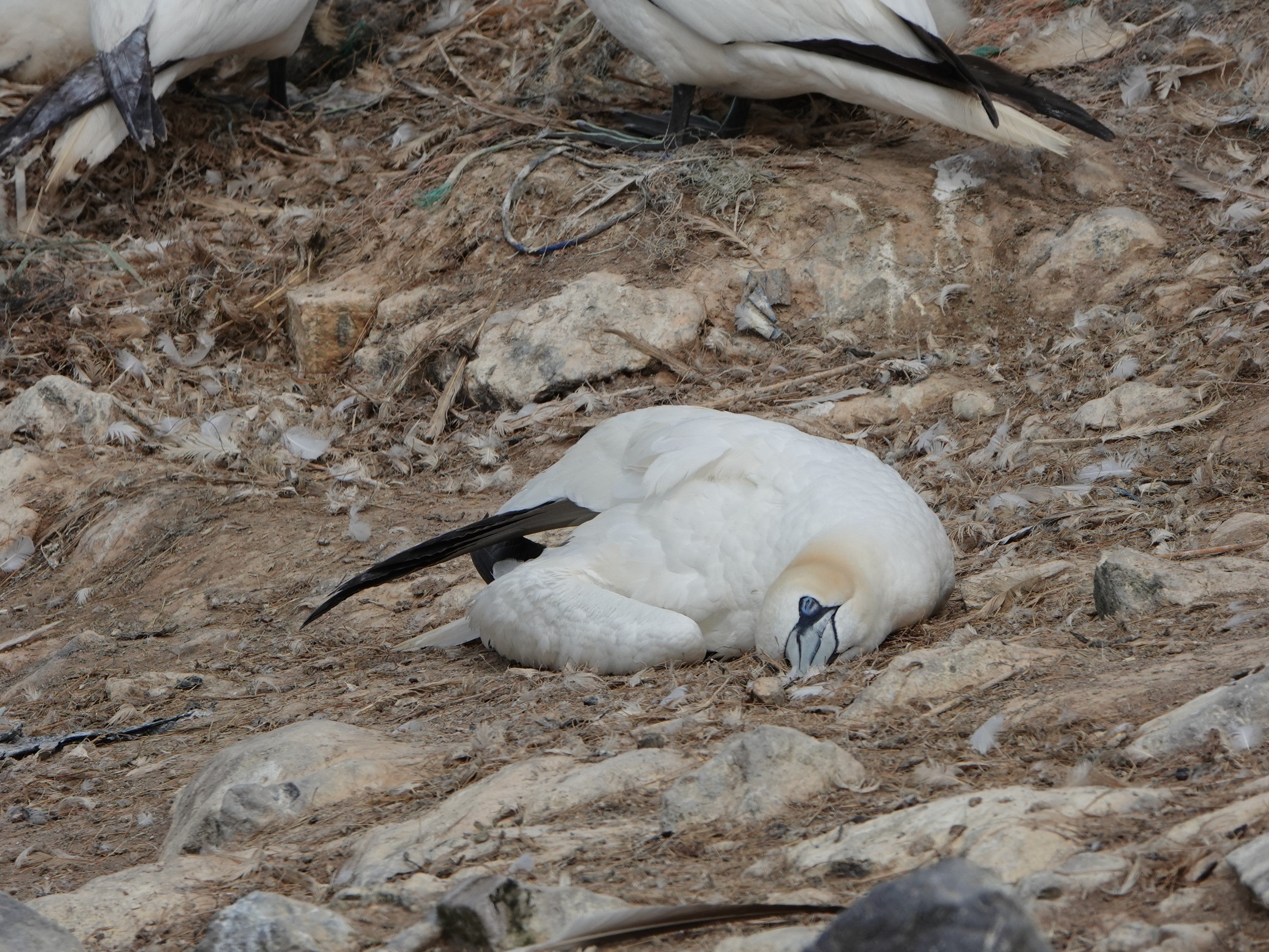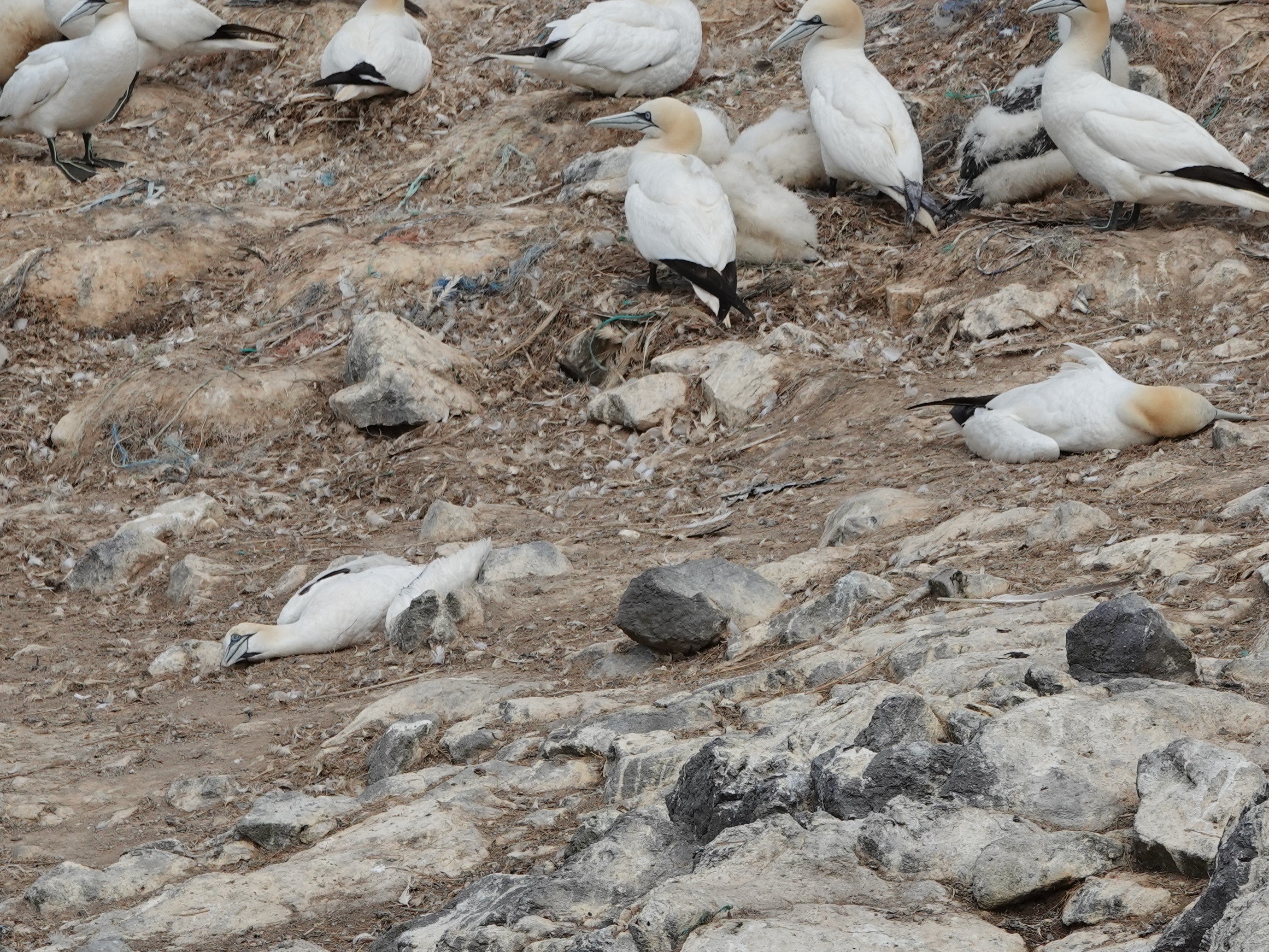Bird flu arrives in South Wales as RSPB calls for government action
Globally important colonies of seabirds now at risk from ‘devastating’ disease which has already caused mass deaths of seabirds on UK coast
Your support helps us to tell the story
From reproductive rights to climate change to Big Tech, The Independent is on the ground when the story is developing. Whether it's investigating the financials of Elon Musk's pro-Trump PAC or producing our latest documentary, 'The A Word', which shines a light on the American women fighting for reproductive rights, we know how important it is to parse out the facts from the messaging.
At such a critical moment in US history, we need reporters on the ground. Your donation allows us to keep sending journalists to speak to both sides of the story.
The Independent is trusted by Americans across the entire political spectrum. And unlike many other quality news outlets, we choose not to lock Americans out of our reporting and analysis with paywalls. We believe quality journalism should be available to everyone, paid for by those who can afford it.
Your support makes all the difference.The bird flu virus, which has already killed hundreds of thousands of seabirds around the coast of the UK, has reached islands off Pembrokeshire in South Wales, home to globally important colonies of birds.
On Tuesday the RSPB confirmed "with a heavy heart" that the disease has reached the island of Grassholm, off the southwestern Pembrokeshire coast in Wales
Grassholm is home to 36,000 pairs of northern gannet, making it the third largest colony in the world. It is also close to key breeding sites for puffins, guillemots and razorbills on the islands of Skomer and Skokholm.
Huge numbers of gannets have already been heavily hit by the virus off the north east coast of Scotland, with mass deaths around Shetland, the Firth of Forth and elsewhere, with harrowing photos and videos showing sick and dying birds scattered across colonies and washing up on beaches.
The mass deaths come after highly pathogenic avian influenza, which originated in intensively farmed poultry in China, hit barnacle geese wintering in the Solway Firth last year, with the thousands of deaths reducing the Svalbard colony population by a third.
In recent months there have been reports of widespread deaths of great skua colonies in Shetland, Fair Isle, Orkney, the Western Isles, Handa, the Flannan Isles and St Kilda.
The RSPB’s Martin Fowlie told The Independent: "Over the last five months we’ve just seen an escalation in terms of the numbers and in terms of the geographic spread. Initially it was all concentrated up in north east Scotland and then we’ve seen cases spread south."
Species including some terns which tested positive for the virus have been found dead on nature reserves in Essex and Kent.
This week the RSPB reported that Coquet Island, off the coast of Northumberland, has now suffered significant losses or rare roseate terns due to the disease. Latest estimations are a 54 per cent death rate in adult Roseate terns.
The RSPB’s site manager for the island Paul Morrison said: “This is the most devastating thing to have to deal with. I’ve never seen anything like this in my life. There are simply thousands of dead birds among the vegetation, wherever you look.
But the species which seems to have been hit the hardest is the great skua. Some colonies are seeing up to 80 per cent of adults die.
"The UK has 60 per cent of all the world’s great skuas, so it’s a real concern for the continuation of the species," Mr Fowlie said.
"They are long-lived birds which only successfully raises a couple of chicks in its lifetime which gets to breeding age. Knocking out a huge number of adults could have an absolutely devastating effect on them."

The RSPB did not yet know the risk to birds of prey such as white-tailed eagles, which have been the subject of several reintroduction projects, but Mr Fowlie said "we’ve seen a few individuals found dead and have had tests showing bird flu in their system".
Speaking about the risk to puffins, which are in rapid global decline due to the climate crisis and overfishing of food, including sandeels, which are commonly used in pet food, Mr Fowlie said adult puffins appear not to be badly affected by the virus so far, with only a few deaths reported.
However deaths of pufflings – baby puffins – have noticeably risen.
The arrival of the virus late in the summer means its impact this season has likely been curtailed, but it is still "a major worry" for the future of the colonies.

The RSPB said media coverage of the worsening spread of the virus has been consistent, but said the government must take action.
"The Scottish and Welsh governments are responding," Mr Fowlie said. "But Defra are really not doing much at all and have sort of washed their hands of the thing saying there’s nothing that can be done."
He said the RSPB was calling on Defra to put together a task force of experts including vets, virologists, ecologists and policy makers, just as occurred in 2005 when the first spike in bird flu occurred.
This would allow appropriate testing to understand what is happening and inform how to deal with it, he said.
Stronger guidance on dealing with carcasses in high-risk areas is also needed, and more monitoring and surveillance with streamlined reporting system would help build up a better picture of the state of the impact – how bird flu is hitting species and how it’s moving geographically.
"By learning more about how it moves in wild birds it can benefit the poultry industry as well," Mr Fowlie said.
Some of the species being affected by HPAI are:
Great Skuas
Gannets
Guillemots
Roseate terns
Sandwich terns
Common terns
Black-headed gulls
Buzzards
White-tailed eagles
Red kites
Puffins
The RSPB said if you come across dead or dying seabirds washed in on beaches do not touch these birds, keep dogs away from them and report to DEFRA on 03459 33 55 77.







Join our commenting forum
Join thought-provoking conversations, follow other Independent readers and see their replies
Comments